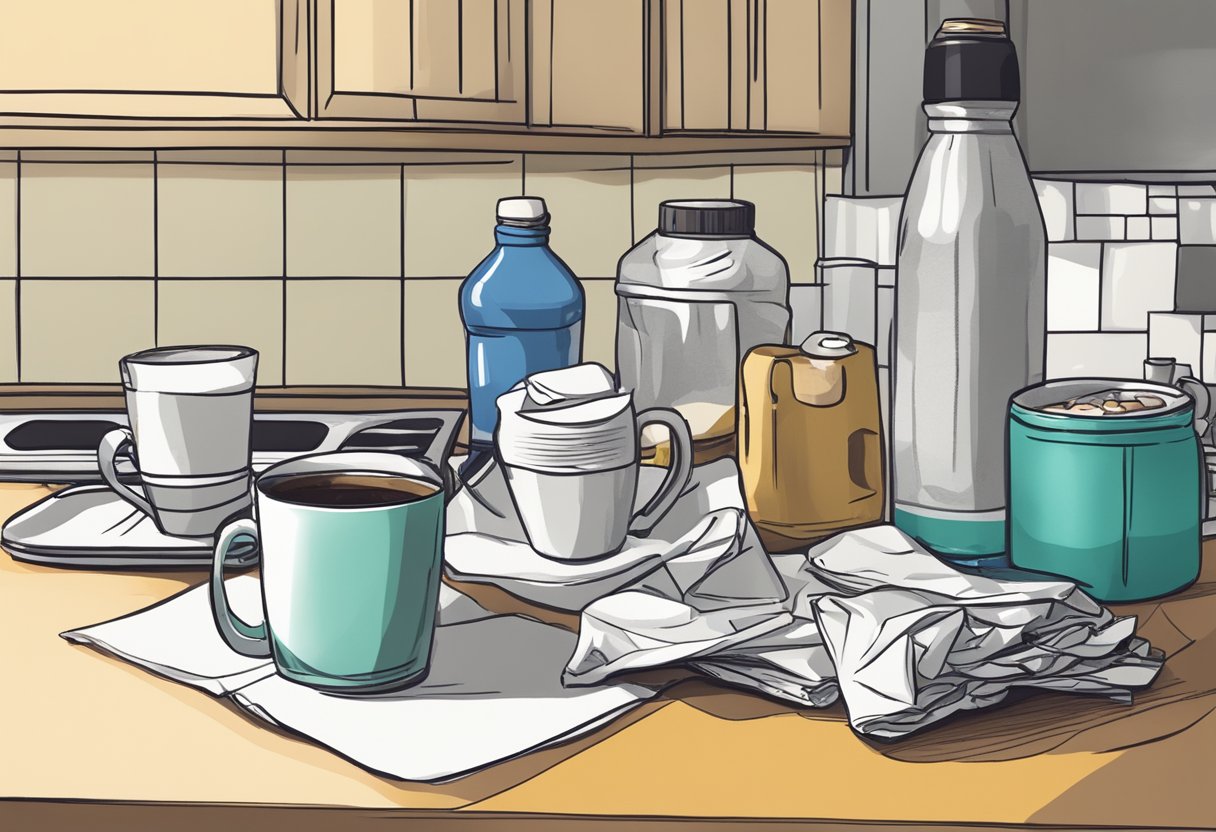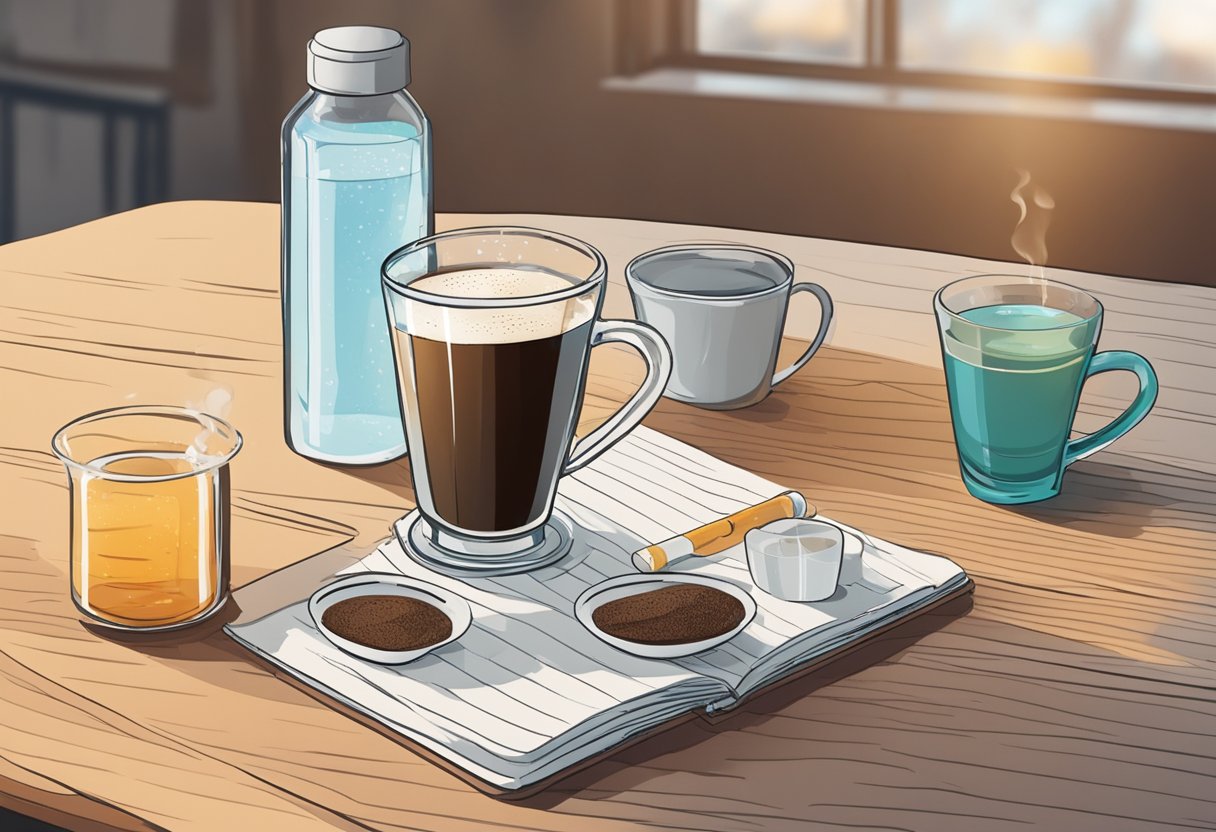1-800-982-4730
1-800-982-4730
Coffee is a popular beverage that many people turn to for a quick pick-me-up. However, when it comes to hangovers, there is some debate as to whether or not coffee is beneficial or harmful. Some people swear by a cup of coffee to help alleviate their hangover symptoms, while others claim that it only makes things worse.

Hangovers are a common occurrence for people who consume alcohol. The symptoms can range from mild to severe and can include headaches, nausea, dehydration, and fatigue. One of the most common pieces of advice for curing a hangover is to drink plenty of water to rehydrate the body. However, many people also turn to coffee as a way to help them feel better.
While coffee can provide a temporary boost of energy and help to alleviate some of the symptoms of a hangover, it is important to note that it is not a cure-all. In fact, drinking coffee can actually make dehydration worse, which can exacerbate hangover symptoms. Additionally, the caffeine in coffee can cause headaches and make it difficult to sleep, which can further worsen the effects of a hangover.

A hangover is a collection of unpleasant symptoms that occur after consuming alcohol. Symptoms can include headache, fatigue, nausea, stomach pain, dizziness, sensitivity to light and sound, muscle aches, and irritability. Hangovers can be caused by a variety of factors, including dehydration, electrolyte imbalances, and the toxic byproduct of alcohol metabolism, acetaldehyde.
Coffee is often thought to be a cure for hangovers, but the truth is more complicated. While caffeine can help alleviate headache pain and improve alertness and focus, it is not a cure-all for a hangover. In fact, caffeine can actually make some symptoms worse, such as increasing blood pressure and exacerbating dehydration.
Dehydration is a major cause of hangover symptoms, and caffeine is a diuretic, meaning it can increase urination and further dehydrate the body. Additionally, caffeine can interfere with the body's production of vasopressin, a hormone that helps regulate water balance and prevent dehydration.
However, coffee can be beneficial for some hangover symptoms. For example, caffeine can help alleviate fatigue and improve mental clarity. Additionally, coffee contains antioxidants that can help protect the liver from damage caused by alcohol consumption.
Overall, the best way to treat a hangover is to focus on hydrating the body and replenishing electrolytes. Drinking water, sports drinks, or coconut water can help rehydrate the body and replace lost electrolytes. Resting and allowing the body to recover is also important.
There are many home remedies for hangovers, but not all of them are effective. Pain relievers such as aspirin or ibuprofen can help alleviate headache pain, but should be used with caution as they can irritate the stomach. Sweating and exercise can help release toxins from the body, but should be done in moderation to avoid further dehydration.
In conclusion, while coffee may provide some temporary relief for certain hangover symptoms, it is not a cure-all and can actually make some symptoms worse. Hydrating the body and allowing it to rest and recover is the best way to treat a hangover.

When people have a hangover, they often turn to coffee to help them feel better. However, the effects of coffee on hangovers can be mixed, depending on several factors.
One of the most significant effects of coffee on hangovers is that it can exacerbate dehydration. Hangovers are often caused by dehydration, and coffee can make this worse. Coffee is a diuretic, which means it can increase urination and lead to further dehydration.
Caffeine is a stimulant that can help people feel more alert and awake, which is why many people turn to coffee when they are feeling tired or groggy. However, caffeine can also worsen headaches and other symptoms of a hangover.
As with most things, moderation is key when it comes to coffee and hangovers. Drinking too much coffee can exacerbate dehydration and other symptoms of a hangover. On the other hand, drinking a moderate amount of coffee may help people feel more alert and awake without worsening their hangover symptoms.
Another factor to consider is timing. Drinking coffee too soon after consuming alcohol may exacerbate dehydration and other hangover symptoms. It's best to wait until the body has had time to process the alcohol before drinking coffee.
Congeners are chemicals that are produced during the fermentation process of alcohol. They are known to worsen hangover symptoms, and some studies suggest that coffee may worsen the effects of congeners.
Some people believe that drinking more alcohol the morning after a night of heavy drinking can help alleviate hangover symptoms. This practice is known as "hair of the dog." While it may provide temporary relief, it can ultimately make hangover symptoms worse and lead to alcohol use disorder.
Getting enough sleep is essential for the body to recover from a night of heavy drinking. Drinking coffee too late in the day can disrupt sleep and make it harder for the body to recover from a hangover.
In summary, coffee can have both positive and negative effects on hangovers. Drinking coffee in moderation and waiting until the body has had time to process the alcohol can help alleviate some symptoms. However, drinking too much coffee or drinking it too soon after alcohol consumption can worsen dehydration and other hangover symptoms.

Hangovers can be quite unpleasant, but there are several remedies that can help alleviate the symptoms. While coffee is a popular option, it is not always the best choice. Here are some alternatives and remedies that can help:
One of the main causes of hangover symptoms is dehydration. Drinking plenty of fluids can help rehydrate the body and alleviate symptoms such as headache, dizziness, and fatigue. Water is a good choice, but other options such as coconut water and electrolyte drinks can also be helpful.
Hangovers can deplete the body of important nutrients and vitamins. As a result, it is important to replenish these nutrients to help the body recover. Foods such as toast, asparagus, and ginger can help settle the stomach and provide important nutrients. Vitamins such as B vitamins and zinc can also be helpful.
Over-the-counter medications such as aspirin, ibuprofen, and acetaminophen can help alleviate headache and other symptoms. However, it is important to follow the recommended dosage and avoid taking these medications on an empty stomach.
The best way to avoid a hangover is to drink in moderation. Drinking a glass of water between alcoholic beverages can also help prevent dehydration. Eating a healthy breakfast can also help replenish nutrients and prevent symptoms.
The Cleveland Clinic recommends waiting it out and drinking lots of water as the best hangover cure. They caution against using quick remedies such as coffee or greasy breakfasts, which can worsen dehydration and other symptoms.
Some natural remedies such as ginseng and pear cactus have been shown to help alleviate hangover symptoms. Drinking teas such as ginger tea and pear juice can also be helpful.
Overall, there are several alternatives and remedies that can help alleviate hangover symptoms. While coffee may not always be the best choice, there are plenty of other options to help the body recover.

When it comes to hangovers, the long-term impact of coffee consumption is not well understood. While some studies suggest that moderate coffee intake may have health benefits, excessive consumption may lead to negative effects. It is important to note that while coffee may provide temporary relief from hangover symptoms, it does not address the root cause of the problem.
One of the primary causes of hangovers is dehydration, which can be exacerbated by drinking coffee. While coffee may help to alleviate some symptoms, it can also lead to increased urination and further dehydration. To prevent hangovers, it is important to stay hydrated by drinking plenty of water before, during, and after alcohol consumption.
Another factor that can contribute to hangovers is the consumption of congeners, which are byproducts of alcohol fermentation. Darker alcohols such as red wine and whiskey tend to have higher levels of congeners, which can make hangovers worse. To prevent hangovers, it is recommended to drink lighter-colored alcohols such as vodka or gin, and to drink in moderation.
Age and sensitivity to alcohol can also play a role in the severity of hangovers. As people age, their bodies become less efficient at metabolizing alcohol, which can lead to more severe hangovers. Additionally, some people may be more sensitive to alcohol and experience worse hangovers as a result.
While there is no guaranteed cure for hangovers, there are steps that can be taken to prevent them. Drinking in moderation, staying hydrated, and avoiding darker alcohols can all help to reduce the likelihood and severity of hangovers. It is also important to seek medical attention if hangover symptoms persist or are accompanied by other health issues such as injuries, heart disease, stroke, high blood pressure, depression, or vertigo.
In summary, while coffee may provide temporary relief from hangover symptoms, it is not a long-term solution. To prevent hangovers, it is important to stay hydrated, drink in moderation, and avoid darker alcohols.